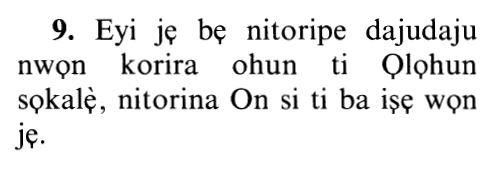47vs9
Select any filter and click on Go! to see results
ذَلِكَ بِأَنَّهُمْ كَرِهُوا مَا أَنزَلَ اللَّهُ فَأَحْبَطَ أَعْمَالَهُمْ
Thalika biannahum karihoo ma anzala Allahu faahbata aAAmalahum
Index Terms
Click to play
Yoruba Translation

Hausa Translation
Wannan, sabõda lalle sũ, sun ƙi abin da Allah Ya saukar dõmin haka Ya ɓata ayyukansu.
Asbabu n-Nuzuul (Occasions of Revelation)
Thus, Allah says,
ذَلِكَ بِأَنَّهُمْ كَرِهُوا مَا أَنزَلَ اللَّهُ ...
That is because they hate that which Allah has sent down;
which means that they did not want or like what Allah revealed.
... فَأَحْبَطَ أَعْمَالَهُمْ ﴿٩﴾
so He made their deeds fruitless.
" ذلك بأنهم كرهوا ما أنزل الله " أي لا يريدونه ولا يحبونه " فأحبط أعمالهم " .
"ذلك" التعس والإضلال "بأنهم كرهوا ما أنزل الله" من القرآن المشتمل على التكاليف
أي ذلك الإضلال والإتعاس ; لأنهم " كرهوا ما أنزل الله " من الكتب والشرائع .
I'raab - grammatical analysis of the Qur'an
«ذلِكَ» مبتدأ.
«بِأَنَّهُمْ» حرف جر وأن واسمها.
«كَرِهُوا» ماض وفاعله وجملة كرهوا خبر أن.
«ما» مفعول به.
«أَنْزَلَ» ماض.
«اللَّهُ» لفظ الجلالة فاعل والجملة صلة والمصدر المؤول من أن وما بعدها في محل جر بالباء وهما متعلقان بمحذوف خبر المبتدأ.
«فَأَحْبَطَ أَعْمالَهُمْ» معطوف على كرهوا.
